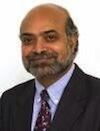Climate Variability, Rice Production, and Food Policy in Indonesia
Roz Naylor will be lecturing on climate variability, rice production, and food policy in Indonesia as part of Brown University's conference on Climate Change and its Impacts. This conference will focus on changes in the supply of and demand for water in the 21st century, due both to changes in regional climate and to human population growth and development patterns. Major themes will include predicted changes in regional hydrologic cycles; resilience of existing social, economic, civil, ecological, and agricultural systems to likely changes; the potential of global and local institutions to increase the resilience of these systems; and what can be learned from one region to inform effective design of policies and water management structures in other regions.
The conference is part of a larger institutional effort under the Brown International Advanced Research Institutes (BIARI). Throughout the Institute, participants will focus on developing interdisciplinary research through communication and joint development of projects.
Brown University
Rosamond L. Naylor
The Jerry Yang and Akiko Yamazaki
Environment and Energy Building
Stanford University
473 Via Ortega, Office 363
Stanford, CA 94305
Rosamond Naylor is the William Wrigley Professor in Earth System Science, a Senior Fellow at Stanford Woods Institute and the Freeman Spogli Institute for International Studies, the founding Director at the Center on Food Security and the Environment, and Professor of Economics (by courtesy) at Stanford University. She received her B.A. in Economics and Environmental Studies from the University of Colorado, her M.Sc. in Economics from the London School of Economics, and her Ph.D. in applied economics from Stanford University. Her research focuses on policies and practices to improve global food security and protect the environment on land and at sea. She works with her students in many locations around the world. She has been involved in many field-level research projects around the world and has published widely on issues related to intensive crop production, aquaculture and livestock systems, biofuels, climate change, food price volatility, and food policy analysis. In addition to her many peer-reviewed papers, Naylor has published two books on her work: The Evolving Sphere of Food Security (Naylor, ed., 2014), and The Tropical Oil Crops Revolution: Food, Farmers, Fuels, and Forests (Byerlee, Falcon, and Naylor, 2017).
She is a Fellow of the Ecological Society of America, a Pew Marine Fellow, a Leopold Leadership Fellow, a Fellow of the Beijer Institute for Ecological Economics, a member of Sigma Xi, and the co-Chair of the Blue Food Assessment. Naylor serves as the President of the Board of Directors for Aspen Global Change Institute, is a member of the Scientific Advisory Committee for Oceana and is a member of the Forest Advisory Panel for Cargill. At Stanford, Naylor teaches courses on the World Food Economy, Human-Environment Interactions, and Food and Security.


